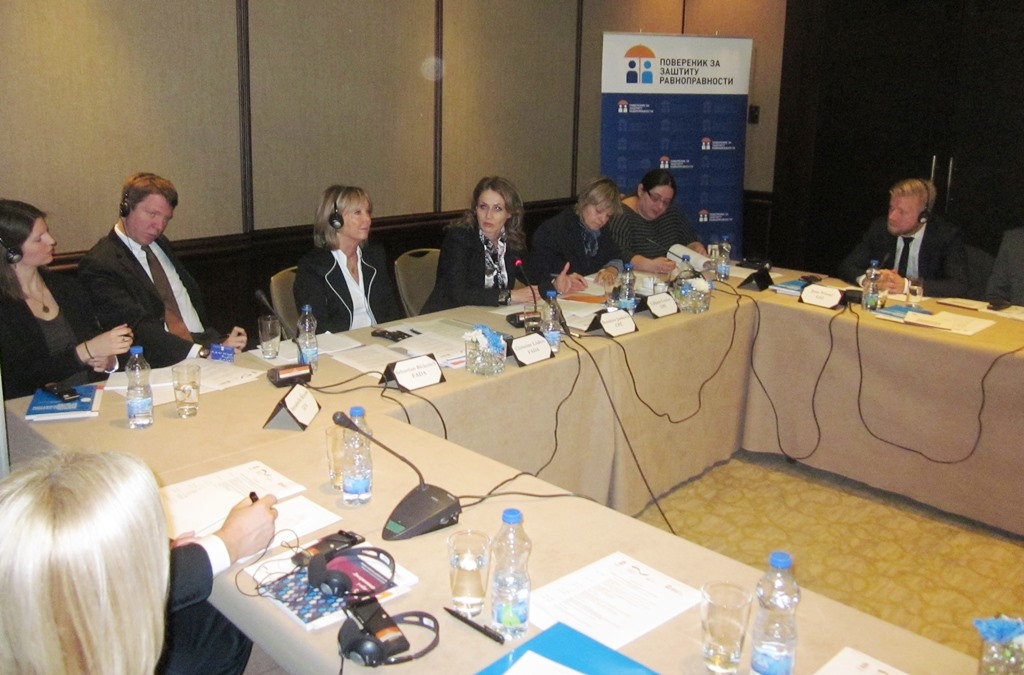Round table “Suppressing labor and employment related discrimination” held in Belgrade was an occasion for Brankica Janković, the Commissioner for the Protection of Equality and Christin Luders, Director of German Federal Directorate for Combatting Discrimination to present their respective experience and opportunities for promoting equality in this particular area.
Commissioner Janković stressed that the overwhelming majority of complaints filed with the Commissioner for the Protection of Equality refers to labor and employment related discrimination.
„Approximately one third of complaints launched with the Commissioner for the Protection of Equality pertain to perpetrated discrimination in this area, hence we have our work cut out for us in eliminating prejudice regarding workers belonging to marginalized social groups. I take this opportunity to acknowledge good work of employment sites and web portals that have opted to abide by our recommendations and refrain from posting job announcements containing discriminatory eligibility criteria such as gender, age and appearance of job applicants. Some have ventured even further by posting summary guidelines aimed at eliminating discriminatory job prerequisites”, said Commissioner Janković.
Christin Luders, Director of German Federal Directorate for Combatting Discrimination said that labor and employment related discrimination is present in Germany and that women and migrants are most vulnerable. „In the current situation, when we face refugees looking for employment on daily basis, there can be no room for discrimination. We must ensure equal opportunities to all job seekers”, said Christina Luders.
Christina Luders and her team members presented “Anonymous job application” project at this round table which was held as part of GIZ’s Legal and Judiciary Reform Program. Other attendees included representatives of the National Employment Service, Serbian Chamber of Commerce, Infostud employment website, Ministry of Labor and Employment, Veteran and Social Affairs.
At the outset, this was a pilot project of the German Federal Agency for Combatting Discrimination and in 2012 representatives of large companies such as German Post, Deutsche Telecom, L’Oreal, P&G, local and provincial employment services and a number of small and medium companies joined the project. This project is still running in Germany and implies that personal data, such as name, surname, gender, age, national affiliation and photograph of job applicants is omitted from the job application. It is only in the second stage of the selection process that the identity of a job seeker is revealed. Women were the group that benefited from this project the most as they began receiving more invitations to the second round of job interviews, ergo their chance of being offered employment spiked. This project showed that candidates who applied anonymously had 54% greater chance of finding employment than when applying by submitting a form which contains their personal data. In terms of migrants i.e. residents of Germany of Turkish or Arabic descent the effects were very good too.


